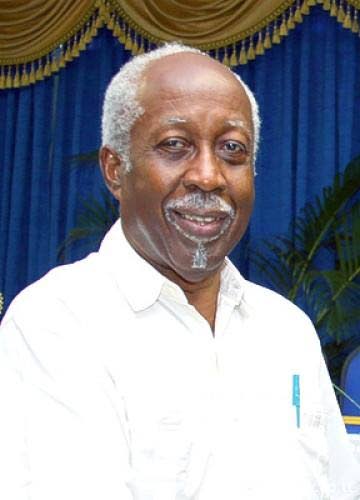Public disservice?

Reginald Dumas
ON SEPTEMBER 9, 1995, nearly 30 years ago now, Camille Robinson-Regis, then minister of information, issued a statement “to the media…(on) Cabinet’s decision to implement the recommendations of a committee appointed by Cabinet to make recommendations for improving the delivery of government services in Tobago.” The committee had been established, she said, following “concern” by prime minister Patrick Manning “that the people of Tobago felt neglected.”
The Cabinet accepted 22 recommendations of the committee, none of them having to do with documentation from the Registrar-General’s Office. Many of them, however, clearly showed the inconveniences visited on Tobago residents by administrative shortfalls or omissions in Trinidad. For example, retired public officers or relatives of deceased officers had to go to Trinidad to collect benefits.
Also, Tobago residents “requiring…specialist medical attention (had to) travel to Trinidad…(b)ecause the Scarborough Hospital (provided) a limited range of specialist medical services due to a lack of specialist personnel and/or facilities.” Although the present Scarborough hospital is said to offer a greatly expanded range of such services, I yet wonder to what extent practice matches theory.
In February 2002 Robinson-Regis, now minister of legal affairs, launched a computerised system at the Registrar-General’s Office, Tobago to assist Tobago-based attorneys to access legal documents – deeds, letters of administration, etc – in a matter of minutes; there would now be no need for them to go to Trinidad for such documents. It would appear obvious – I don’t have any record thereof – that subsequent action was taken to provide similar electronic access for Tobago residents wishing copies of birth, death and marriage certificates, etc.
Recently, however, Tobago residents have been twice barred from such access by the Registrar-General’s Office in Trinidad, forcing them to revert to what they thought they had left behind many years ago – travel to Trinidad for the documents they need. In 2023, it is nothing short of a scandal that there should be such an absence of concern – to use Manning’s word – for the welfare of the Tobago public. And how were they locked out?
My information is that the credentials of the relevant staff of the Tobago Office of the Registrar-General were blocked by Port of Spain. (The Tobago office falls within the department called Central Administrative Services Tobago. This department is headed by a permanent secretary, and is a part of the Prime Minister’s Office.) The credentials blockage denied the staff access to relevant documents. And who has been most inconvenienced by such blockage? The Tobago public, of course.
But why the blockage? And who decided and put it into effect? Here, what I’ve been told enters the realm of the bizarre. I understand that the problem stems from a personal, unfavourable view held by a senior officer in Trinidad of an officer in Tobago. I don’t want to believe this; I really don’t. You couldn’t be seriously telling me, could you, that because individual A has a difficulty with individual B, A will visit punishment on the people of Tobago as a whole? And worsen the already strained relations between Scarborough and PoS? Is that how we are to walk “side by side” in the national interest?
And if A is a public officer, what would this say about our public service? It’s already much criticised, and the other day I supported the Chief Justice’s call for public sector reform. Here is an excellent example of why such reform is vital. A matter I suspect could have been handled quietly and administratively has morphed into unpleasantness over rank and status. And, as so often, the welfare of the people suffers. Are we heading towards a public disservice?
Disturbing though it be, I have no reason to doubt the veracity of the information I’ve so far received on this Registrar-General matter. But I know I haven’t got it all. It would therefore be unwise of me to propose formal solutions. At the very least, however, there must be a thorough official investigation of the affair, and the chips must be allowed to fall where they may.
If the investigation shows clearly that disciplinary measures are necessary, so be it; apply them. We’re talking here – again – about good governance, in this case both relations within and among government departments and between such departments and the public, in the best interest of TT. Where Tobago and Trinidad are concerned, there is especial cause for concern when these relations – as, alas, has so often been the case – are not seen as inspired by good administration but rather by indifference or high-handedness. Another example came to my notice just a few days ago.
Patrick Manning is still right.

Comments
"Public disservice?"